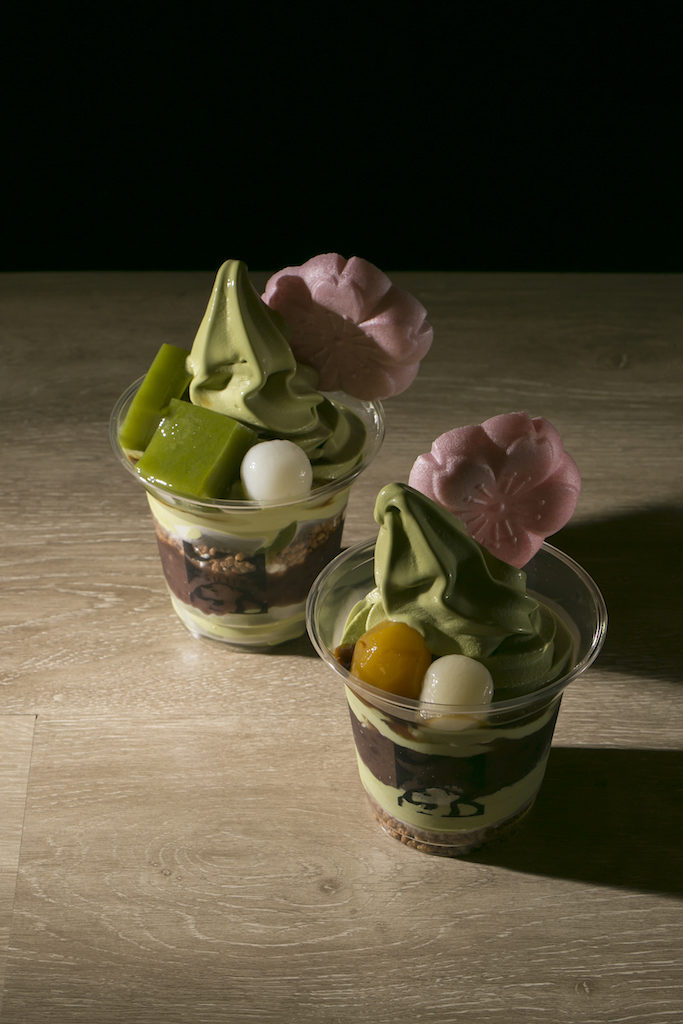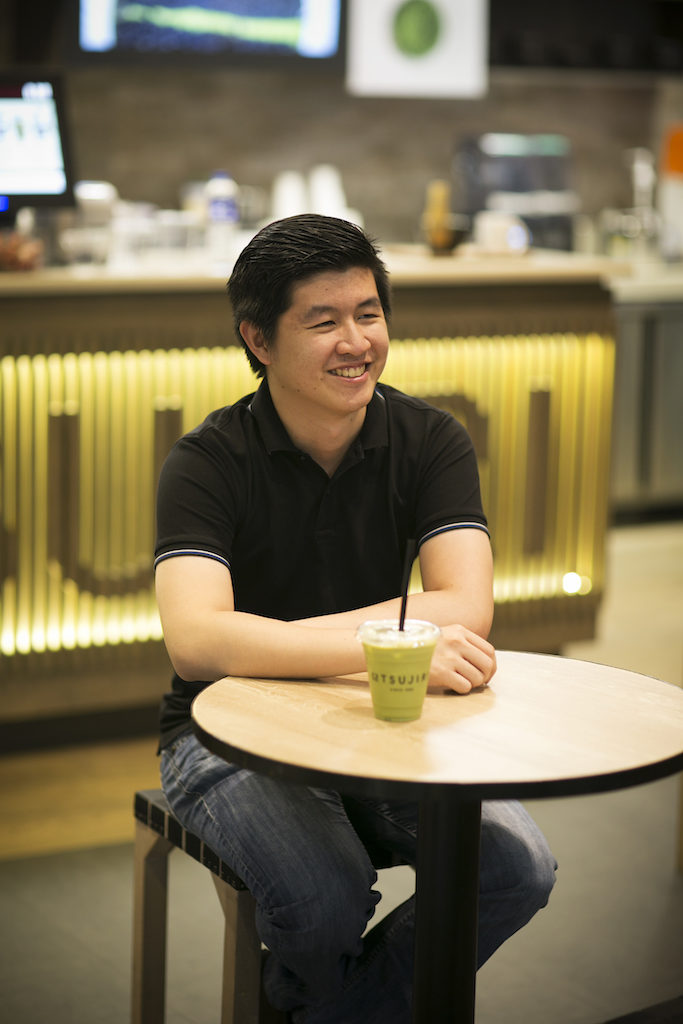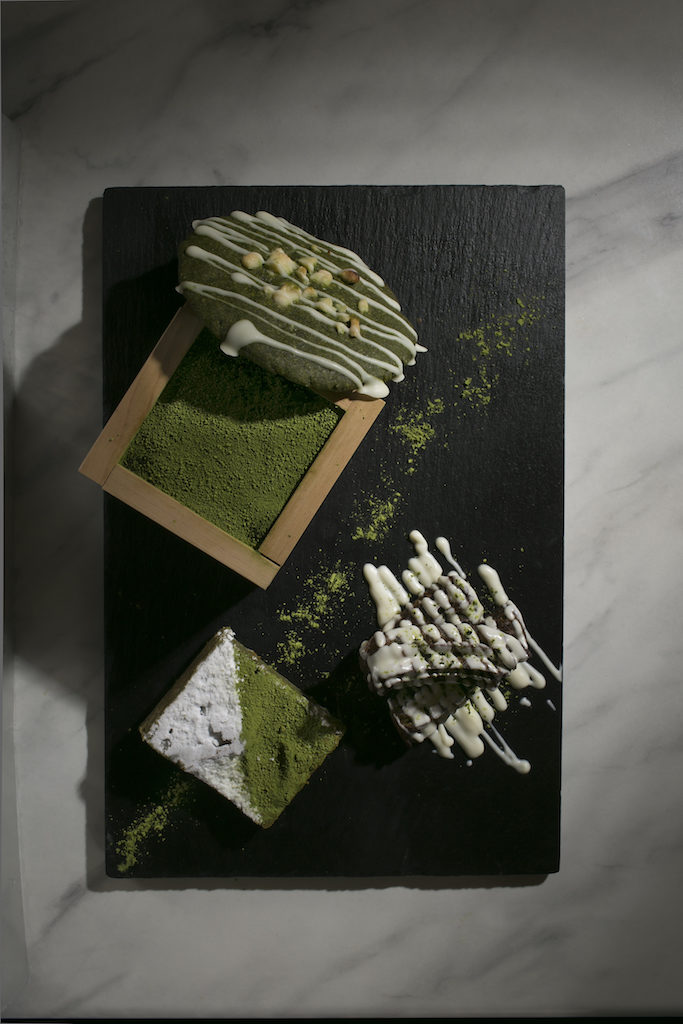Everywhere we turn, we see green.
The earthy hue of Japanese green tea—specifically matcha, which are whole leaves dried and ground to a powder and not merely infused like other teas—is no longer just limited to hot beverages after a full meal. They flavor milk chocolate bars, soft serve ice cream, bubble tea, and even cheesecake. The bold and adventurous infuse it in savory dishes to smoke fish or sprinkle with salt over fried seafood and meats.
Matcha, however, shines brightest in desserts. Tsujiri, the Japanese-owned, Taiwan-based dessert shop, offers sweet treats flavored with green tea. Calling their offerings “sweet” might be misleading since Tsujiri’s cakes and parfaits are far from sugary. Tsujiri Philippines’ Sean Ponce says, “Good matcha is never bitter, which is why we don’t have to excessively sweeten our desserts. Our customers actually say that what they like about our products is that they are not too sweet.”

Made for Manila
Ponce had his first taste of Tsujiri while on vacation in Taiwan and, coincidentally, the owner was a friend of a business partner. While the family has dabbled in food and beverage before, they are comfortable running their gaming and amusement outlets, such as Quantum and Powerstation. But the younger Ponce was convinced that the brand was a good fit for the Philippine market and soon enough, he persuaded his father to diversify.
The young owners of BGC health food outpost Nomi are equally optimistic that Manila is the perfect location for their first venture into food. Asuka Hosokawa, Také Hosomi, and Mike Jiang left comfortable jobs abroad to settle in Taguig City and start anew.
Hosokawa may be half-Filipina, but it took more than her roots to convince her partners that Manila was the right choice. Hosomi says that it wasn’t even actually their first pick. “I have a home in Hawaii, so initially, we wanted to set up shop there,” he says. But the cost of capital would have been much higher. Then, they did some research using Jiang’s work experience at Google and realized selling matcha among other superfood-based drinks and dishes in Manila made perfect sense.

Jiang points out that Japan has become “the new Hong Kong” with relaxed access to Filipino passport holders, making Japanese culture more familiar to Pinoys. In these digital times, the fact that Filipinos are the number one users of social media also made the market more attractive to these first-time entrepreneurs. “When Filipinos like something, they like to share it on social media,” Jiang says. “Of course, this makes it easier for new brands like ours to reach out to customers.”
Market appeal
Social media, too, seems to be an important marketing tool for Ponce. Their most popular draws are the sundaes. Sure, their soft serve ice cream boasts deep, earthy flavors and complex textures but, he admits, “they look good. People like taking photos of the sundaes and posting them on Instagram. We’re truly a dessert place.”
Not Nomi, though, which was built around the virtues of proper nutrition and overall wellness. With a menu that consists of lean proteins, whole grains, and fresh produce, matcha was brought into their arsenal of superfoods not only for its distinct and trendy taste but also because of its nutritional value. Matcha, like other green tea variants, is rich in antioxidants and chlorophyll that flush toxins and possess health-boosting properties. It pairs well with Nomi’s menu of “power bowls” and grab-and-go sandwiches, which are popular with a growing local market looking to stay fit and healthy.

“According to our research, when fitness becomes a trend in a certain city or country, nutrition soon follows. Usually after three to four years of the fitness boom,” Jiang says. In hindsight, we might recall that a few years ago there was a sudden interest in running, triathlon, and yoga. CrossFit and cycling studios are just as common now as your regular gym. If the Nomi trio’s calculations are correct, the best time to get into the heath food business is right now.
It seems that Nomi has truly come into the picture at just the right time. Jiang has developed quite a following in the fitness scene in BGC and the young and vibrant trio has made some famous and influential friends who have been helpful with the business. They seem to be at the crest of their popularity, but how long will this last? Jiang seems unperturbed. The young owners are already talking about expanding abroad, even franchising.
“As long as health and nutrition are something people care about, I don’t see Nomi going away,” he says. Ponce is more conservative and offers a tiny smile, but with Tsujiri branches in upscale locations doing well, they are scoping out more spots for their matcha-flavored treats.
Originally published in F&B Report Vol. 15 No. 3





